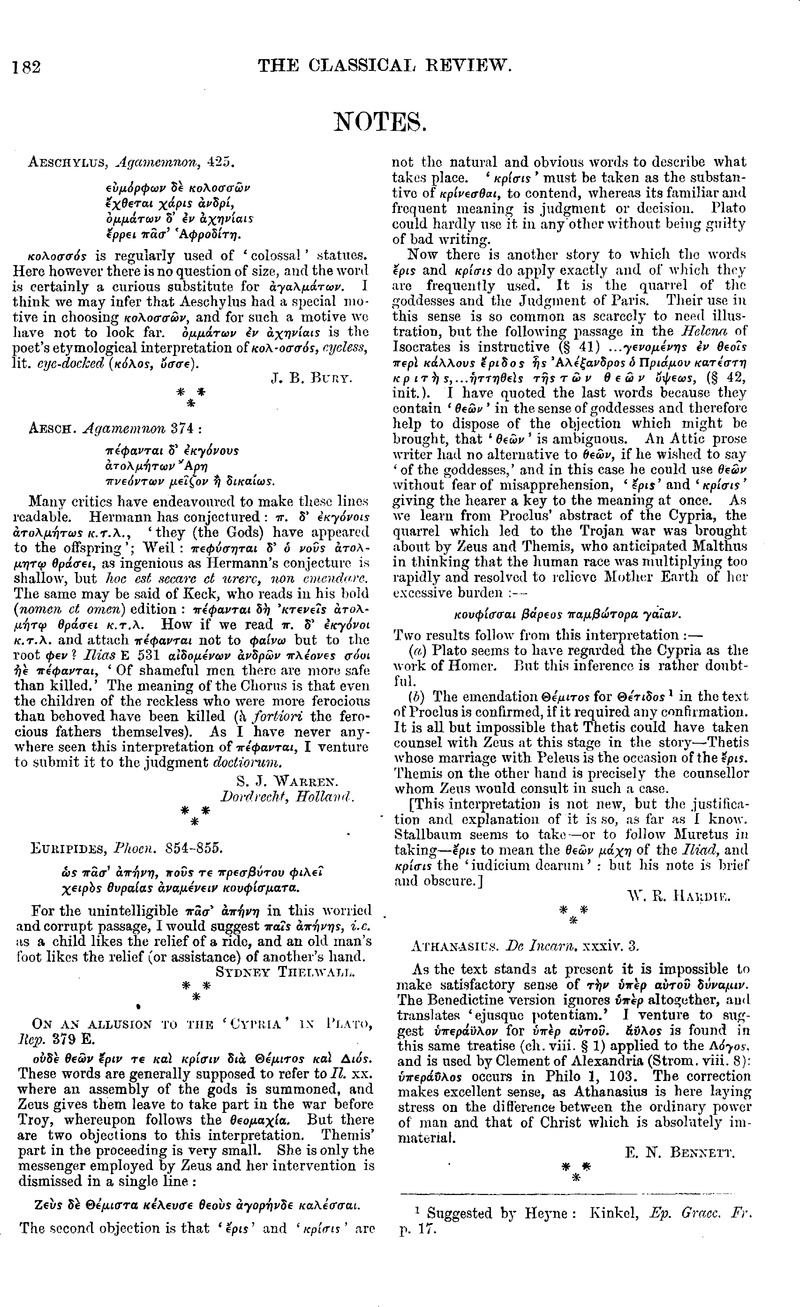No CrossRef data available.
Article contents
Notes
Published online by Cambridge University Press: 27 October 2009
Abstract

- Type
- Notes
- Information
- Copyright
- Copyright © The Classical Association 1890
References
page 182 note 1 Suggested by Heyne, : Kinkel, Ep. Grace. Fr. p. 17.Google Scholar
page 183 note 1 Or for ![]() then the ρ was dropped owing to ρ following close upon it in forms like
then the ρ was dropped owing to ρ following close upon it in forms like ![]()
![]() , cp.
, cp. ![]() for
for ![]() etd, Brug. Curt. Stud. ix. 272.
etd, Brug. Curt. Stud. ix. 272. ![]() , if it stood alone, might well come from
, if it stood alone, might well come from ![]() : uen-ter, as suggested by Feist Goth. Etym p. 89.
: uen-ter, as suggested by Feist Goth. Etym p. 89.
page 183 note 1 It should not be forgotten that![]() has been compared with Eng. ash. But the coincidence of the Avestic word has not been noticed before, and should hardly be left out of account.
has been compared with Eng. ash. But the coincidence of the Avestic word has not been noticed before, and should hardly be left out of account.




